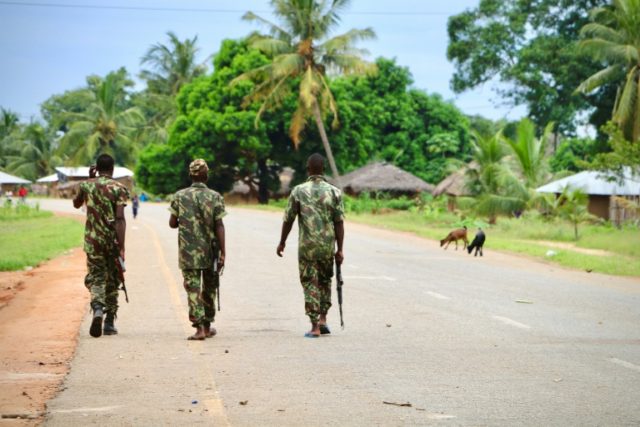Maputo (AFP) – The US embassy in Mozambique said Friday it had “information pointing to the likelihood of imminent attacks” in the country’s north, which has been rocked by recent attacks blamed on jihadists.
“We strongly advise American citizens in the district headquarters of Palma to consider departing the area immediately,” said an advisory posted on the embassy’s website.
Palma, in Mozambique’s northern Cabo Delgado province, is expected to become an energy hub after promising discoveries of natural gas but the region has seen a string of bloody attacks on security forces and civilians since October.
Almost 30 people have died in machete and knife attacks in rural areas that police have linked to an unnamed jihadist group.
US oil and gas giant Anadarko suspended some activities in the region and moved affected workers and contractors to a secure site, according to a source close to the company who declined to be named.
“The workers were moved because of the proximity of the recent attacks. As soon as the situation returns to normal, operations will resume,” said the source.
– ‘Proximity of recent attacks’ –
The embassy statement said that American citizens “who elect to remain in Palma district are strongly advised to avoid travel to the district headquarters”.
It also encouraged them to “postpone visits to both government offices and retail locations, including markets”.
Suspected jihadists hacked at least five people to death on Wednesday in a village 250 kilometres (155 miles) south of Palma, an attack blamed by police on jihadists.
Police believe the same group also hacked seven people to death in another village in the region on Tuesday after beheading 10 people in a seperate settlement on May 27.
The group, often described by locals and officials as “Al-Shabaab”, has no known link to the Somali jihadist group of the same name.
Police and army reinforcements have been deployed to the region to step up security but attacks have continued unabated.
The May 27 bloodshed occurred in two small villages close to the border with Tanzania and not far from Palma.
In October, armed men targeted a police station and military post in the regional town of Mocimboa da Praia in what was believed to be the first jihadist attack on the country.
Two officers died and 14 attackers were killed.
In the weeks following the initial attacks, at least 300 Muslims, including Tanzanians, were arrested and several mosques were forced to close.
– ‘Should be taken seriously’ –
“These messages are typically a response to credible intelligence information. As such, the warning should be taken seriously,” said Nick Piper, the director of Signal Risk, an Africa-focused consultancy which estimates the group has 1,000 members.
Martin Ewi, an analyst at the Pretoria-based Institute for Security Studies, called the alert “serious for northern Mozambique”.
Analysts have previously suggested group members may have used proceeds from organised crime, including timber, gemstone and narcotics trafficking, to travel abroad to Tanzania and Democratic Republic of Congo to receive training in guerilla tactics.
The increase in attacks in the north of the country could pose serious problems for Mozambique, which holds general elections next year and is hoping for a bonanza from the recently-discovered gas reserves.
Experts predict that Mozambique could even become the world’s third-largest exporter of liquefied natural gas.
The north has largely been excluded from the economic growth of the last 20 years, and the region sees itself as a neglected outpost, creating fertile ground for radical Al-Shabaab-style ideology.
According to official statistics, 17 percent of Mozambicans are Muslim but Islamic leaders say the real figure could be double that.
“A few weeks ago diplomats stationed in Maputo were saying the government had contained this crisis but their assessment has now changed,” said Alex Vines, a Mozambique expert at the London-based Chatham House think-tank.

COMMENTS
Please let us know if you're having issues with commenting.